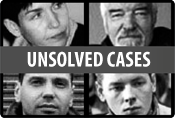Mass Media vs Propaganda in EaP Region
On May 19-20, the First Media Conference of Eastern Partnership countries took place in Riga, attended by almost 400 delegates from the region.
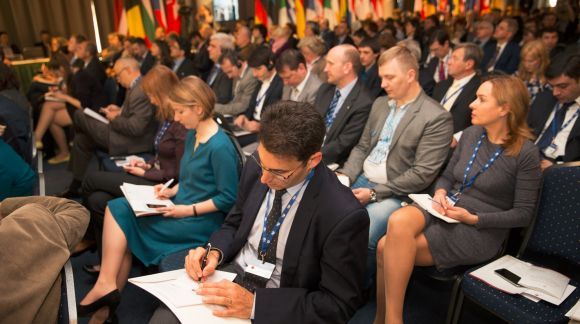
Photo eu2015.lv
Ex-chairperson of BAJ Zhanna Litvina and currently chairperson of BAJ Andrei Bastunets took place in the forum. The official Minsk was presented by Yury Biabeshka, a representative of the Information Ministry of Belarus.
A special panel was dedicated to the situation of mass media in post-Soviet states, the discussion titled “Resilient Media – Ensuring the Right to Balanced, Factual and Reliable Information”.
Maryja Savushkina made a gist from the discussion for BAJ, outlining the main issues bothering media and institutions in EaP countries.
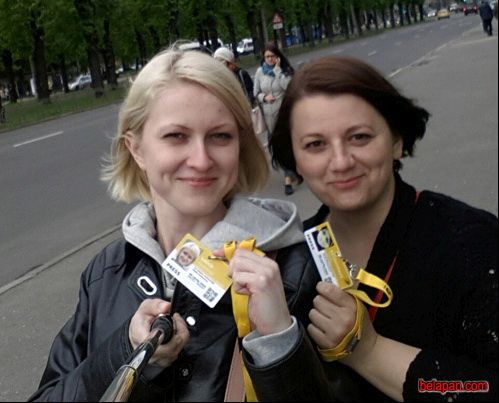
Photo naviny.by
Propaganda
The notion belonging to the past has returned to the actual discourse. Propaganda and its presence today is not simply a fact to face, it is a real threat. Participants of the media conference unanimously admitted that the Russian media space has been contaminated by the disease. The appearance of the communicative monster and the Kremlin’s play without the rules means weakening of media roles, loss of trust to mass media, shortage of true information on air, disorientation of audiences in the whole region of Eastern Europe, Central Asia, Baltic states and wherever the Russian TV broadcasts.
What is propaganda and what are its threats? According to common definition, propaganda is a form of communication that is not objective and used to influence audiences and form the agenda. In most cases, the term has negative connotation and associates with manipulation. How to single out propaganda? First, by selective representation of facts, false information and omission of information. Propagandist statements on air are aimed for emotional, not rational response.
Standards
Dunja Mijatović, the OSCE Representative on Freedom of the Media, spoke of the situation in EaP countries the following way: the future does not bear hopes for changing the situation. All what we see is a direct ugly effect of propaganda. Why we think things should improve? The picture is not pink. We should think what we can do, she said.
At the media conferences in Riga, it’s been many times reiterated that the best weapon against propaganda is professional work. Colleagues and media experts warned against standing on the way of counterpropaganda, which is appealing and effective, but leads to a dead-end, from the professional point of view.
Local media
(NB! correction on the source) Russian media have one more specific: the Russian TV offers not only news, but also their view on local events. “Meantime local media do not speak about local events in their national languages, but argue with propaganda,” she underlined. To argue with propaganda and use the Russian language for this is a slippery path for media in the EaP region. Experts think mass media can resist propaganda effectively using national languages and their authority in local communities.
In all, competitiveness of mass media in small national languages is increasing, underlined Dace Melbārde, the Minister of Culture of Latvia. She thinks the role of local media should be re-estimated, more attention should be paid to them.
Correction on the source: Tatsiana Repkova The factors impacting on the development of professional media in EaP countries (slideshare)
Trust to mass media
Oksana Romaniuk, executive director of the Independent Mass Media Institute, Ukraine, said that trust to mass media has been very much undermined by the fact that media belong to oligarchs. Meantime, the role of local media increases, as well as of non-profit journalistic projects, like www.stopfake.org, like never before. Audiences trust those projects without commercial goals, working for the public good only. She underlined that more trust will be paid to broadcasters organized according to the principle of a public broadcasters, and any media with transparent ownership structure. In all, increasing trust correlates with lowering media’s dependence on their owners.
Media literacy
Audiences without “vaccination” against propaganda and unprofessional media work become weak, disoriented and easily manipulated. Media literacy is one of the tools of such “vaccination”. Some EU countries adopt courses on media literacy in schools, to teach basic rules and principles of journalistic work, to speak about the role of mass media in a democratic society.
Belarus
Zhanna Litvina, who headed BAJ from 1995 to 2015, spoke at the conference in Riga outlining complicated conditions for Belarusian journalists. These are prosecution and pressure through courts, fines for work, problems with accreditation, lack of critical thinking of audiences of Russian mass media that have been rooted in Belarus for quite a long time.
The representative of the Information Ministry Yury Biabeshka said his word in response to Zhanna’s statements. The official representative argued that “mass media legislation in Belarus develops according to national peculiarities.”
The argument did not find a lot of support among the audience. “To make a media space really free and corresponding to democratic standards, civil society organizations of Armenia suggested closing the Ministry of Information, which was done,” said Boris Navasardyan, head of the Yerevan Press Club.
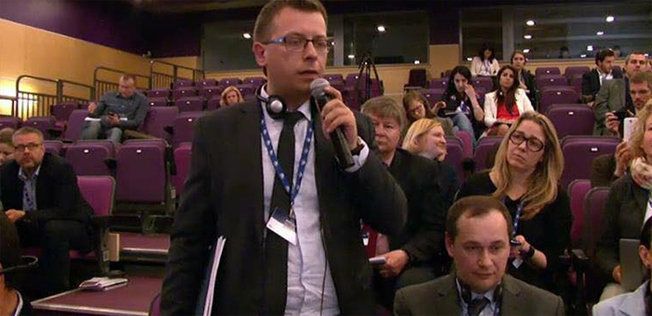
Photo nn.by
An answer to Kremlin
At the media conference, a research on Russian language mass media in EaP countries was presented. The research, held by the European Foundation for Democracy, frevealed that TV has stayed a dominating information and news resource for Russian-speaking audiences of EaP countries, also in Baltic states, Central Asia, and in Russia itself. The research authors offered some forecasts and recommendations, find them here, the final variant of the report is expected in June, 2015.
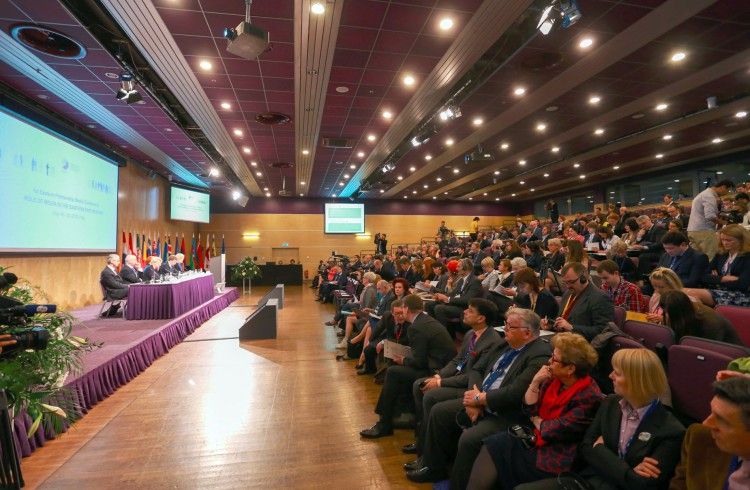
Photo azertag.az

